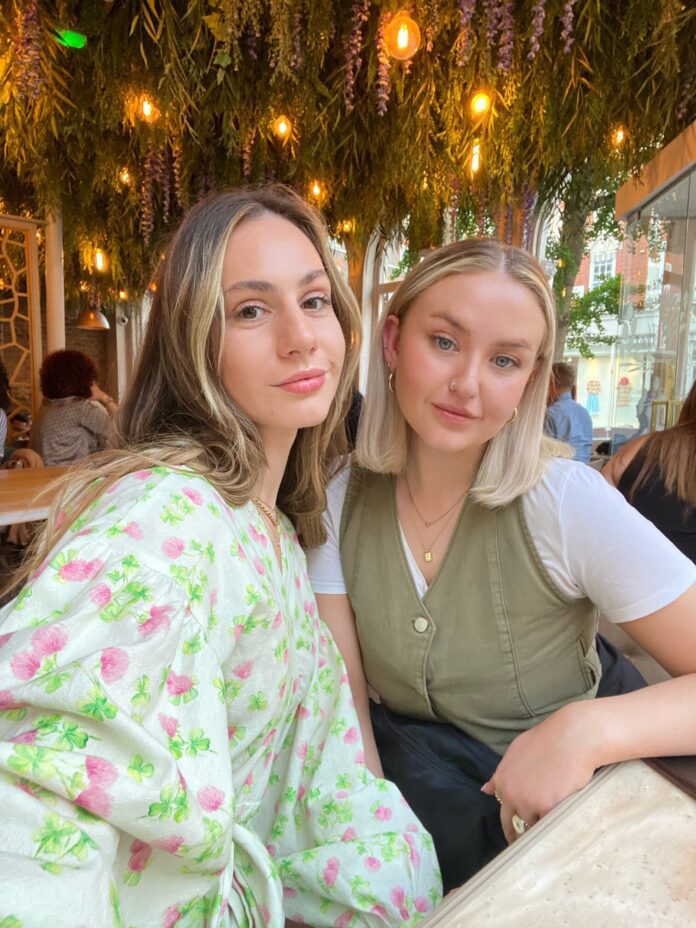66% of 18–24 year-olds have some form of side-hustle Three quarters of 18–24-year-olds claim having just one job is ‘risky’ 53% of young workers need flexible working hours and hybrid work to maintain side-hustle 59% of 18–24-year-olds are anxious about pay; often living pay-cheque-to-pay-cheque Family commitments, working long hours, and fear of burnout are primary reasons holding older workers back from pursuing a ‘side hustle’.
Two thirds of professionals under the age of 24yrs claim to have a ‘side hustle’ – with 74% stating it is ‘too risky’ to focus on just having one job as they may have done pre-pandemic.
In a poll undertaken by recruitment consultancy Robert Walters; 54% of young professionals expressed a desire for a ‘portfolio career’ – the concept of monetising your skills in several ways and having multiple income sources, rather than a single job at one company.
In fact, 53% of young workers have stated that flexible hours and a hybrid working environment is a must when looking for a job – otherwise it will impact their side-hustle.
Toby Fowlston – CEO of Robert Walters, comments:
“Our survey has found that side-hustles are a priority for young professionals but for too long side-jobs have been considered a ‘dirty secret’ by employers.”
“However, I don’t believe this is the right approach. Portfolio careers have long been a go-to for highly experienced professionals who use their knowledge and offer consultancy, training, or advisory services when near or post-retirement.”
“If viewed through a different lens, a side hustle or portfolio career for a junior professional showcase’s entrepreneurialism, initiative, innovative thinking, and great project management skills. All characteristics which should be championed by employers.”
“For those concerned about employees being distracted it’s worth noting that 70% of Gen Z professionals state that their employer does meet their career expectations, the highest out of any other age cohort. A side hustle does not necessarily mean that an employee is not interested in progressing within their primary job.”
Anxiety rife for young workers
According to the Robert Walters survey of 6,000 professionals, it is 18–24-year-olds (Gen Z) who reported feeling twice as anxious as their more experienced colleagues in the past 18 months around job security, pay, relationships at work, and their mental well-being.
Young professionals living pay cheque to pay cheque
When looking into the pay of young professionals, we can see that almost a third of 18–24-year-olds are on a salary band of £16 – £21k. With the largest proportion (25%) being on salaries of £21 – £28K.
For those young professionals that are earning around £28,000 – after tax, national insurance, and student loan repayments – take home can be in the region of £1,800 per month.
When we consider the current cost of living (see link), figures show that this cohort of young workers are unable to financially live by themselves – whilst also saving money for the future and investing in a pension for their retirement.
The inability for employers to keep increasing salaries in-line with inflation or cost of living means that the young professionals situation is only worsening, leading them to looking for additional sources of income.
Toby Fowlston adds: “The traditional values of employees holding one job and being bound by moonlighting clauses in their employment contracts needs to be addressed. Employers need to be flexible, and leaders must be empathetic that – for some – a side hustle is not just a passion-project but a necessity.”
“I would encourage businesses to have an open mind about their employees’ extra-curricular activities – encouraging them to bring that level of initiative and entrepreneurialism to the workplace.”
“Don’t underestimate what value a side-hustle can bring to the day job i.e., a financial advisor having a huge TikTok presence – these skills can be utilised in their day job and become of great value to the company.”
“Offer a platform – whether it is allowing them to sell cakes or crafts in the office lobby, host a lunchtime yoga session, or the ability to promote what they do on the intranet or internal notice boards.”
“Of course, all of the above needs to be balanced against a strong day-to-day performance at work, offering these opportunities is a privilege that needs to be provided as a result of good employee performance in their day job.”
Beth Harries, Team Support at Robert Walters, started her online shop, with her friend, in lockdown as a fashion passion project and since then earns up to £3k per month – in addition to her fulltime salary. She shares her thoughts on why she has undertaken a side-hustle:
“If I had to summarise it; the primary reason I have the side-hustle that I do is because of my genuine interest and love for vintage, preloved, and designer fashion. Running my online shop on Depop – Faar Collective – feels more like ‘fun’ or a hobby, rather than ‘work!’ The fact that I run the business alongside one of my best friends also makes the side hustle experience much more enjoyable and rewarding.
“The second reason is simply to enhance my skillsets. Marketing & Communications has long been a field that I want to go into, and so I feel having a side-hustle is a great way to build my portfolio of skills and contacts – and is the perfect way to show initiative and personal discipline, whilst also displaying the possession of a range of other transferrable skills.
“Lastly and one that has crept up on me in the last year is the fact that my side-hustle has proven to be a great way to earn an additional income alongside my full-time salary. In the past, this additional income has given me the freedom to be able to save and spend money that I wouldn’t ordinarily have, whilst now the income is helping to diminish any financial pressures that I anticipate may be coming my way.”
Case Study: Beth Harries
Name: Beth Harries, 25yrs
Originally from: Llanelli, South Wales. I moved to Birmingham to study Fashion Branding & Communications and chose to stay on after graduating.
Current full-time role: Marketing Team Support at Robert Walters. This is my first full-time job post-University, after working part-time throughout my degree and during the pandemic at high street retailer Urban Outfitters.
Side-hustle: Alongside my friend, I source and re-sell vintage and designer clothing on the e-commerce platform Depop. My online Depop store – Faar Collective – specialises in vintage clothing from the 90’s and 2000’s, made from sustainable and quality fabrics e.g. genuine leather, pure silk, cashmere etc. (All of our packaging is also sustainable).
Why did you start your side-hustle: I met my friend Agne Ivanauskatie (25 years) on the same course at university. We graduated in Spring 2020 and straight after that lockdown struck. We started Faar Collective in late 2020, initially as an outlet for our interest in fashion after graduating. Most of the time spent starting the business was during one of the first Covid-19 lockdowns, so having this project was a great way to keep us busy, make an additional income, and to have something to focus on whilst having sustainability in mind.
(Agne Ivanauskatie, Lithuanian, 25 years. Her fulltime job is in sales in London for a British female-founded jewellery brand, as well as dipping her toe into influencer marketing via her own Instagram where she has been made ambassadors on various fashion brands).
What additional skills do you think your side-hustle gives you:
Self-discipline, Initiative & Motivation: It’s very easy to become ‘lazy’ and to procrastinate when working on your own terms, however with a side-hustle you have to stay motivated and disciplined with your time in order to get the results that you set out for.
Admin/Accounting: As Faar Collective is a registered business, we must keep on top of everything we do – we have to keep a record of every spend (including packaging and postage costs, sale revenue etc) for our tax returns.
Social Media/Communication: We use Instagram to help promote our brand, as well as a form of CRM and aftercare. It is essential that we regularly interact with followers and post consistent & engaging content across our stories and feed. We have also previously liaised with micro influencers to help us promote our store – gifting a piece from our collection for them to promote on their page.
Organisation/Time management: We often set ourselves weekly deadlines to ensure that we stay on top of tasks. Time management is extremely important when it comes to sending orders out on time if we are to maintain our 5-star rating – this includes providing delivery updates to customers and uploading new items.
Describe your growth: At the beginning, we relied on customers finding our shop organically since we hadn’t yet built-up our store/brand/social media page etc, which meant that initially sales were slow but steady. Now that we are much more established on Depop & Instagram, along with building an extensive collection of vintage & designer pieces, we have seen a steady increase in sales – which tends to peak around holidays and events e.g. Christmas, new year, summer holidays etc. We now have a great customer base with a good number of repeat custom, and we definitely don’t plan to stop our side-hustle and are always looking for the next step to grow the business further.
How much do you make from your side-hustle: We tend to sell a consistent number of items throughout the year – often increasing slightly around peak periods like December. We make on average between £1,000 – £3,000 per month, but sales can be unpredictable, so this figure does fluctuate.
How many hours a week do you allocate: We would typically spend 20 hours a week sourcing items in person, preparing, photographing, and uploading new items to Depop. However, we refresh and re-list the items in our store whenever we get a chance throughout the day (we currently have 255 pieces listed on our page and we typically refresh each item 8 or 9 times a day). This can be quite time consuming!
When do you work on your side-hustle: We primarily use our weekends as a designated time to tick off the large jobs such as sourcing, preparing, photographing, and listing our items. Due to the lighting being best at early morning/midday, this is the best time to take photos in natural light. We often use studio lighting if we miss our chance to take photos at midday. We package and post items before or after work on the day of purchase. As re-listing and re-uploading items are daily tasks that are done multiple times a day, we like to do this whenever we get a chance as it’s hugely beneficial. This might be on our commute before or after work, on our lunch break, after work, whilst cooking dinner, or in our spare time in the evening.
Does your manager know: Yes, my manager does know about my side-hustle and is fully supportive. He (my manager) always makes a conscious effort to ask how it’s going and pays a genuine interest in what I’m doing which feels encouraging. As a result of his attitude, I am extremely open with the wider team and office if they show interest.
Do any of your friends have a side-hustle: Quite a few of my friends have side hustles – Whether it’s running their own music events, DJ’ing, looking after dogs, modelling, or running their own pre-loved clothing store. The common factor seems to be that their side-hustles are something which they genuinely love or have a personal interest in.
Help keep news FREE for our readers
Supporting your local community newspaper/online news outlet is crucial now more than ever. If you believe in independent journalism, then consider making a valuable contribution by making a one-time or monthly donation. We operate in rural areas where providing unbiased news can be challenging. Read More About Supporting The West Wales Chronicle

























